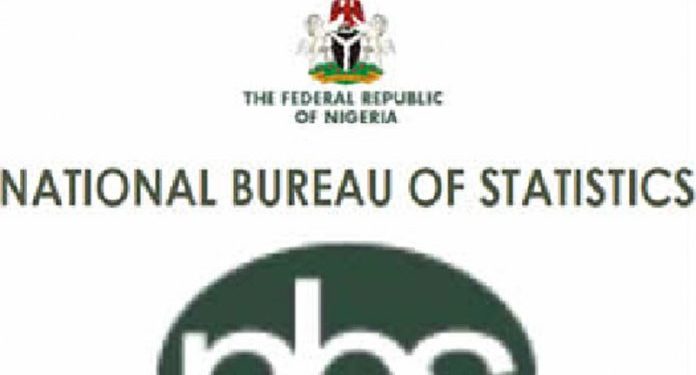The Consumer Price Index (CPI), which measures inflation, again rose to 11.40 per cent year-on-year in May compared to 11.37 per cent in April, according to the National Bureau of Statistics (NBS).
The CPI figures for May, which were released by the NBS yesterday, showed that core inflation, however, stood at nine per cent compared to 9.3 per cent in the preceding month.
The composite food index rose to 13.79 per cent in the period under review compared to 13.70 per cent in April.
The NBS stated that the urban inflation rate also increased to 11.76 per cent (year-on-year) from 11.70 per cent in April while the rural inflation rate stood at 11.07 per cent in May from 11.08 per cent in the preceding month.
On month-on-month basis, the urban index rose to 1.15 per cent in May 2019, up by 0.15 points from one per cent recorded in April, while the rural index also rose to 1.07 per cent in May, up by 0.17 per cent from the rate recorded in the preceding month.
However, the statistical agency attributed the rise in the food index to increases in the prices of meat, oils and fats, bread, cereals, potatoes, yam and other tubers, as well as fish, milk, cheese, egg, and vegetables.
Month-on-month basis, the food sub-index increased to 1.41 per cent in May 2019, up by 0.27 per cent points from 1.14 per cent recorded in April.
Inflation had dropped in January 2019 when it declined to 11.37 per cent from 11.44 per cent in December in 2018.
The headline index further reduced to 11.31 per cent in February and 11.25 per cent in March before resorting to the upward trajectory in April to 11.37 per cent- and further to 11.40 per cent last month.
Month-on-month, the core sub-index increased to 0.75 per cent in May compared to 0.70 per cent recorded in the preceding month.
According to the NBS, the highest increases were recorded in prices of domestic and household services, tobacco, actual and imputed rentals for housing, medical, dental and hospital services, cleaning, repair and hire of clothing, as well as repair and hire of footwear and repair of household appliance.
The average 12-month annual rate of change of the index was 9.77 per cent for the 12-month period ending May, which is 0.14 per cent points lower than 9.91 per cent recorded in April.
The rebound in the headline index will be a major source of worry to Nigerians amid rising in the prices of basic commodities.
It is even of greater concern for the Central Bank of Nigeria (CBN) which had been struggling to keep inflation rate at single digit as well as contain the rising prices and stabilise the exchange rate.
One of the major concerns around high inflation had been its benign effect on both monetary and fiscal policy and the economy in general.
The consecutive monthly drop in inflation in previous months had allowed for a rare opportunity for the CBN to tinker with the monetary policy rate (interest rate) which was reduced by 50 basis points recently to the excitement of the markets.
The adjustment in MPR finally came after holding the rate at 14 per cent for about two years, largely due to inflation as the former rate cannot go below the latter rate.
There had been increasing expectations that the declining rate of inflation could possibly lead to further slash in MPR by the monetary authorities but the latest rebound could spell otherwise.
The sudden upward trajectory in the headline index beat analysts’ forecasts, some of who had predicted that going by the liquidity management system and other related conditions, including the fact that elections are over, the rate may continue to decline.
Expectedly, inflation continued to be a focus of the MPC and had often determined decisions around interest rate.










